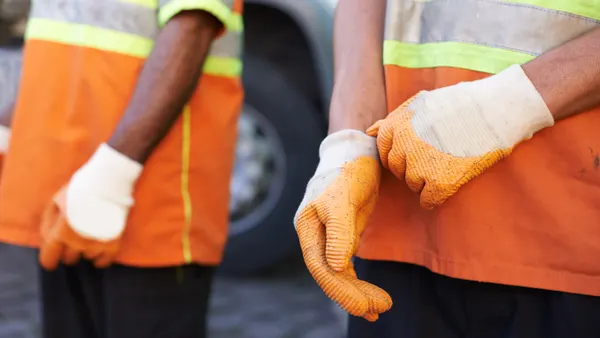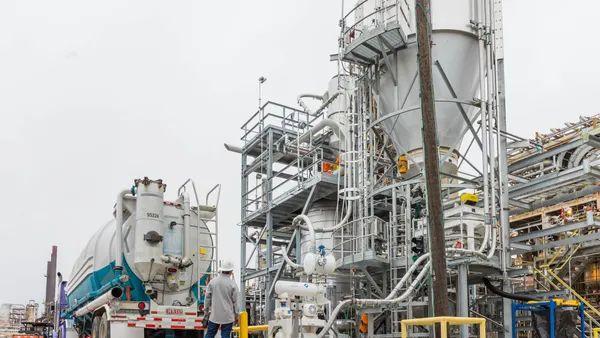Dive Brief:
- The New York Department of Taxation and Finance collected $102.7 million in unclaimed 5-cent deposits from the state's container redemption program in 2016. This was down from $109.5 million in 2015.
- A new audit from Comptroller Thomas DiNapoli is questioning whether the department is collecting as much money as it could. After reviewing close to three years of quarterly reports, the comptroller's office found irregularities from many deposit initiators (beverage distributors and retailers). Some regularly filed identical redemption percentages, filed late, didn't file at all, or reported much higher bank service charges than others.
- Among multiple recommendations, DiNapoli's office is calling on the agency to begin assessing late penalties, improve report monitoring and require supporting documentation with each filing. "New York's landmark bottle bill motivated New Yorkers to recycle more and protect our environment," said DiNapoli in a press release. "The department needs to do a better job collecting the money that could be used to protect and preserve our state's natural resources, parkland, waterways and beaches."
Dive Insight:
New York's bottle bill was enacted in 1982, with multiple changes since then, and helped capture 336,000 tons of containers in 2016. The system is set up for initiators to keep 20% of all unclaimed deposits, with the rest going into interest-bearing accounts to be transferred to the state on a quarterly basis. Under state law, $23 million per year in unclaimed deposits, plus any revenue from violations, is dedicated to the Environmental Protection Fund.
Yet, DiNapoli's office found that more than 30% of initiator accounts are inactive, raising questions about participation and record-keeping accuracy. Among the initiators that did file during the audit period, an estimated 18% of them were late. When looking closer at late filings, the comptroller's office found the department had no valid reason for not assessing late penalties in nearly half of the cases.
While this may sound arcane, these types of details are what can make or break a bottle bill program. Such financial arrangements are often decades-old in the states that have them, and require ongoing attention.
In California, that has meant emergency state intervention to address a decline in redemption centers due in part to low processing payments. Other states, such as Massachusetts and Iowa, have more stable finances but have seen recent attempts to alter or eliminate their bottle bills. Whereas Oregon, which recently raised its deposit to 10 cents, is working on a refillable beer bottle pilot to adapt to changing market needs.
The logistical factors differ in each of the 10 bottle bill states, and beverage or recycling industry interests aren't always supportive. Yet as expectations grow for beverage manufacturers to play a role in litter reduction, and China's contamination standards make the idea of source-separated streams more appealing, container deposit programs may still have a key role to play.













